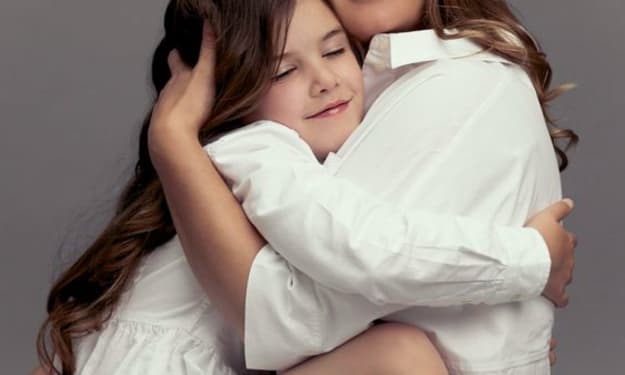
Celebrating Eid: A Joyous Occasion of Unity and Gratitude
Eid, a day of immense joy and celebration, marks the culmination of significant periods of spiritual reflection and growth in the Islamic calendar. There are two main Eids celebrated by Muslims around the world: Eid al-Fitr and Eid al-Adha. Each carries its own unique significance, traditions, and forms of celebration, fostering a sense of community, gratitude, and charity.
Eid al-Fitr: The Festival of Breaking the Fast
Eid al-Fitr, known as the "Festival of Breaking the Fast," follows the holy month of Ramadan, a time of fasting, prayer, and introspection. Ramadan is the ninth month of the Islamic calendar, during which Muslims abstain from food, drink, and other physical needs from dawn until sunset. The fast, known as Sawm, is one of the Five Pillars of Islam and is observed to foster self-discipline, increase empathy for the less fortunate, and bring spiritual growth.
The Sight of the Crescent Moon
The exact date of Eid al-Fitr varies each year, as it is determined by the sighting of the new moon. This lunar event signals the end of Ramadan and the beginning of Shawwal, the tenth month in the Islamic calendar. As the new moon is sighted, communities worldwide prepare to celebrate with joy and thankfulness.
Prayers and Festivities
On the morning of Eid, Muslims gather for a special prayer called the Salat al-Eid. This communal prayer, often held in large open spaces or mosques, brings together families and friends, reinforcing the sense of unity and brotherhood. The prayer is followed by a sermon (khutbah) and a supplication (dua) for forgiveness, mercy, and peace.
Following the prayers, the day is filled with festivities, including visiting friends and family, sharing meals, and giving gifts, particularly to children. Traditional dishes and sweets are prepared, and homes are often decorated to mark the joyous occasion. New clothes are worn to symbolize a fresh start and personal purification.
Charity and Gratitude
A significant aspect of Eid al-Fitr is the giving of Zakat al-Fitr, a form of charity obligatory for all Muslims who can afford it. This charity, given before the Eid prayer, ensures that even the less fortunate can partake in the celebrations. It is a means of purifying those who fast from any indecent act or speech and of helping the poor and needy.
Eid al-Adha: The Festival of Sacrifice
Eid al-Adha, or the "Festival of Sacrifice," occurs approximately seventy days after Eid al-Fitr, during the Islamic month of Dhu al-Hijjah. It coincides with the Hajj pilgrimage, another of the Five Pillars of Islam, undertaken by Muslims who are physically and financially able to make the journey to the holy city of Mecca at least once in their lifetime.
The Story of Sacrifice
Eid al-Adha commemorates the willingness of Prophet Ibrahim (Abraham) to sacrifice his son Isma'il (Ishmael) in obedience to God's command. Just as Ibrahim was about to carry out the sacrifice, God provided a ram to take Isma'il's place, recognizing Ibrahim's unwavering faith. This story is recounted in the Qur'an and is central to the meaning of Eid al-Adha.
Rituals and Sacrifices
The celebration begins with the same communal prayer, Salat al-Eid, followed by a sermon. The central ritual of Eid al-Adha is the Qurbani, or sacrifice, where an animal such as a sheep, goat, cow, or camel is slaughtered to honor Ibrahim's act of faith. The meat from the sacrifice is divided into three parts: one-third for the family, one-third for friends and neighbors, and one-third for the poor and needy. This act of sharing symbolizes charity, community, and the responsibility to care for others.
Global Celebration and Unity
Eid al-Adha is celebrated by Muslims around the world with great enthusiasm. In addition to the Qurbani, the day involves dressing in fine clothes, sharing festive meals, and visiting loved ones. The sense of global unity is especially pronounced as millions of Muslims, regardless of cultural differences, engage in similar rituals and traditions.
The Spirit of Eid
Both Eid al-Fitr and Eid al-Adha emphasize core values such as compassion, charity, gratitude, and community. They are times for Muslims to reflect on their faith, strengthen familial and communal bonds, and extend kindness to those in need.
Building Bridges
Eid celebrations also serve as an opportunity for Muslims to share their traditions with the wider community, promoting understanding and harmony. Interfaith events, open houses at mosques, and community gatherings help to build bridges and foster mutual respect among different cultures and religions.
A Time for Gratitude and Reflection
Eid is a reminder to be grateful for the blessings one has, to seek forgiveness, and to strive for self-improvement. It is a time to renew one's commitment to the values of Islam, such as humility, generosity, and empathy.
Conclusion
Eid is more than just a festive occasion; it is a profound expression of faith and a celebration of the values that bind the Muslim community together. Whether through the joy of breaking the fast during Eid al-Fitr or the meaningful sacrifice of Eid al-Adha, these holidays serve as powerful reminders of the importance of faith, family, and community. As Muslims around the world come together to celebrate, they not only honor their religious heritage but also reinforce the universal principles of compassion, charity, and unity.
About the Creator
Sanjib Nandi
I’m Sanjib Nandi, a professional SEO expert with 3 years of experience. I’ve already completed 50+ jobs from our agency. I can bring organic traffic to your website with my advanced SEO technique.
Enjoyed the story? Support the Creator.
Subscribe for free to receive all their stories in your feed. You could also pledge your support or give them a one-off tip, letting them know you appreciate their work.






Comments
There are no comments for this story
Be the first to respond and start the conversation.